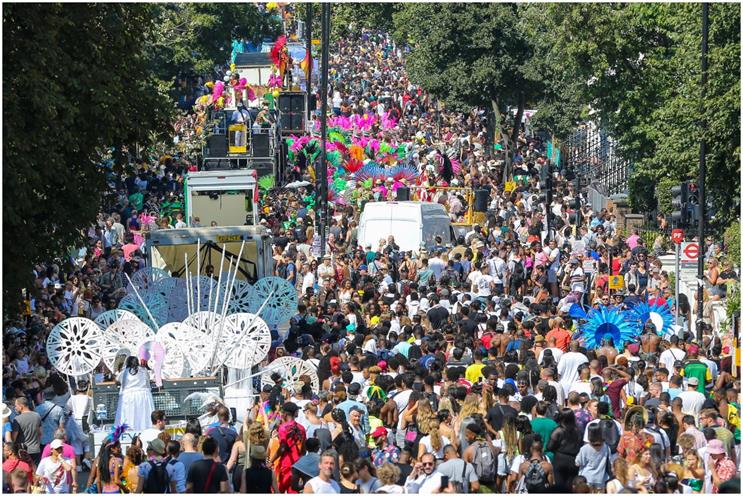
UK brand experience agencies have faced two tough pandemic years, with lockdown restrictions causing the event industry to grind to a halt.
The experience landscape has shifted in line with consumer mindsets, with agencies now committed to working on a wider range of formats than ever before.
This is according to a study conducted by ±±¾©Èü³µpk10, which also found that, despite the ability to hold IRL experiences, brands are not losing interest in virtual formats.
The 13 agencies that took part in the survey were: Amplify, Hot Pickle, Hyperactive, Jack Morton, Momentum, RPM, Sense, Smyle, The Park, Tro, Unit9, Wasserman and XYZ.
When asked "What is the make-up of the projects you are looking to deliver in 2022?" all agencies reported they would be working on in-person experiences but that this was just a portion of their work.
Smyle set its forecast for in-person experiences at 40%, Wasserman at 50%, and Sense and Tro at 70% of their work.
Commenting on his project outlook for 2022, Rupert Pick, co-founder of Hot Pickle, told ±±¾©Èü³µpk10 he was seeing "a seismic shift back to IRL experiences".
He added: "That said, we've held onto a number of virtual experiences, particularly the internal conference activities that are significantly cheaper to deliver virtually versus IRL, especially where global travel is concerned."
His views were echoed by Paul Stanway, creative director at XYZ, who said "in-person events are returning to the numbers we're used to seeing in pre-pandemic years".
Unit 9 was the only agency that felt there was still a feeling of uncertainty around in-person experiential but reported a notable resurgence in interest around immersive technologies.
"Digital work makes up the majority of our business – and, of course, metaverse activations are accounting for a considerable bulk of that. Brands are realising they need to define their role in this new playground, and agencies are working hard to understand more about the space in order to guide them," Rosh Sign, founder of Unit 9, said.
He added: "It looks like VR is back with a vengeance in 2022 and we're excited to see where we can take it this time round."
Other areas being covered by the agencies include virtual events, hybrid events, direct mail, digital trail, digital content, TV ads and out of home.
"2022 is proving to be the most wide-ranging in terms of experience formats at Hyperactive," the agency's founder Andrew Casher said.
RPM, Jack Morton, The Park and Amplify all felt their range of projects was wider and more varied than ever before.
Jonathan Emmins, founder of Amplify, said: "Month on month and year on year, our client work has never been more varied, and that's both progressive and exciting. Clients are coming to us to solve brand and business problems. At best, we are agnostic and at worst less prescriptive over the channels we use, which is more in line with the broader take on brand experience."
When comparing their 2022 project outlook with their performance in 2019 all agencies felt that rather than reverting back to pre-pandemic levels of performance, instead the industry had gone through a fundamental shift.
Matt Lewis, UK president, Momentum Worldwide, said: "The landscape has massively shifted in the past two years in line with consumer mindsets.
"The adoption of technology is much higher, providing more freedom for brands on how to engage with consumers. But we're also seeing brands think and act more integrated in general, viewing the marketing mix as less linear."
While the appetite for brand experiences may seem to have returned to pre-pandemic levels and projects are rolling in, Sally McLaren, managing director of Sense has observed the live briefs "shifting" and feels they seem to fall into one of two camps.
She said: "The first being brands exploring in-person experiences, which directly reach a relatively small number of people but can be seamlessly amplified to extend reach (either digitally or through PR). This is not necessarily anything new and an approach we'd often encourage in the past – the shift is the explicit demand from clients for brand experiences to take this shape.
"The second camp being briefs with a strong 'bottom of the funnel' focus – live activation that will actively drive sales and generate a positive ROI. Most likely driven by market conditions, but also as 'acquisition marketing' has become one of our agency's specialisms in recent years."
So, although we should now be expecting a rise in in-person brand experiences in comparison with last year, the 13 agencies approached by ±±¾©Èü³µpk10 are not predicting that this will reach the levels of 2019.
However, the experience space will be bolstered by a range of digital and hybrid events as digital channels continue to attract brands. Also, the current balance may continue to shift in the future as brands continue to grow in confidence about consumers' appetite for experiences and they seek ways to stand out beyond appearing in the metaverse.
Emmins added: "Whilst the channel mix of experience work has fundamentally changed for the better, we predict an even bigger upsurge in Live work in 2023 based on the briefs we have visibility of."


